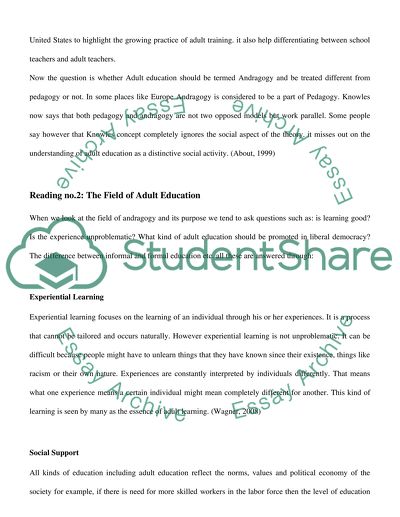Cite this document
(Foundations of Adult Education Assignment Example | Topics and Well Written Essays - 1750 words, n.d.)
Foundations of Adult Education Assignment Example | Topics and Well Written Essays - 1750 words. https://studentshare.org/education/1530583-education-for-adults
Foundations of Adult Education Assignment Example | Topics and Well Written Essays - 1750 words. https://studentshare.org/education/1530583-education-for-adults
(Foundations of Adult Education Assignment Example | Topics and Well Written Essays - 1750 Words)
Foundations of Adult Education Assignment Example | Topics and Well Written Essays - 1750 Words. https://studentshare.org/education/1530583-education-for-adults.
Foundations of Adult Education Assignment Example | Topics and Well Written Essays - 1750 Words. https://studentshare.org/education/1530583-education-for-adults.
“Foundations of Adult Education Assignment Example | Topics and Well Written Essays - 1750 Words”. https://studentshare.org/education/1530583-education-for-adults.


